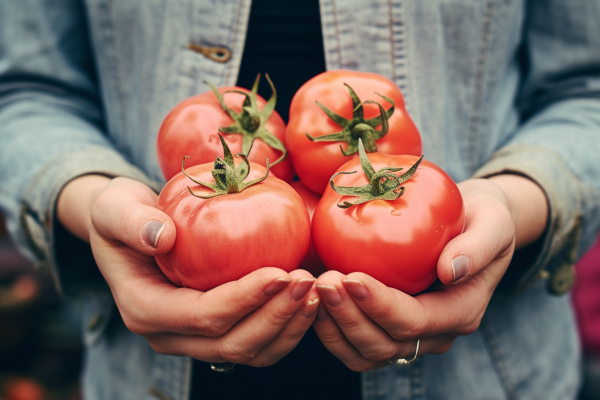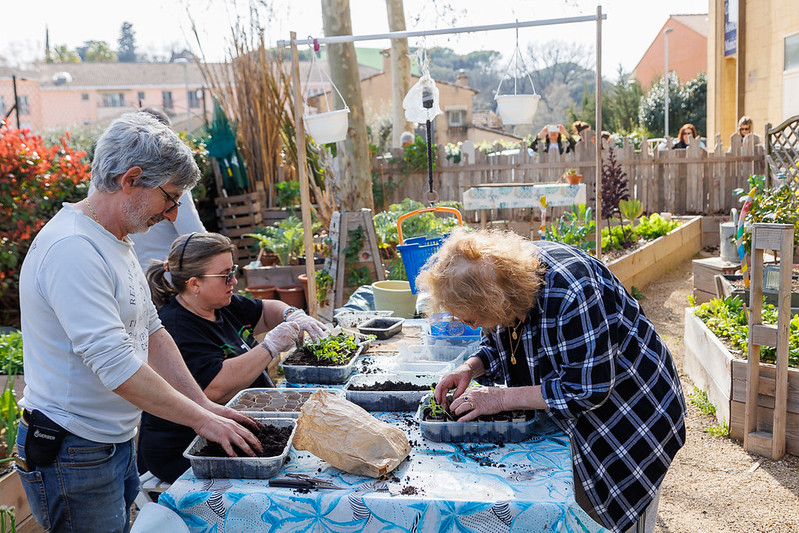
Nourishing sustainable and inclusive urban development in the EU: the vital role of food
In this context, the urban dimension of EU Cohesion Policy has been a key instrument for supporting collaboration, experimentation and innovation. There are now a wealth of city experiences to learn from in terms of how food policy and practice relate to and support objectives as diverse as public health, sustainable production, social inclusion, urban regeneration, rural-urban linkages, education and employment.
Sustainable food systems – a global and EU policy challenge
The relevance and urgency of transforming food systems is increasingly recognised at a European and a global scale.
A hard-hitting 2022 report on food policy by the European Environment Agency (EEA) highlights that: “Food systems in Europe and across the world are currently unsustainable. Globally, they account for almost one-third of GHG emissions, drive biodiversity loss and harmful health impacts, and fail to ensure fair economic returns and livelihoods for all actors.”
The EEA calls for "bold and comprehensive policy responses" to both phase out unsustainable practices and support the emergence of more sustainable alternatives.
Along these lines, the European Cohesion policy 2021-2027 supports more sustainable food systems and food security by emphasising climate mainstreaming in food policy, promoting the reduction of food waste and strengthening local and regional food value chains. It also aims to ensure that such initiatives are embedded in broader regional development strategies to improve environmental sustainability and economic resilience.
Crucially, the Cohesion policy framework aligns with the European Green Deal and the EU's Farm to Fork Strategy, that includes the ongoing work on an EU legislative framework for sustainable food systems to bridge the policy gaps in the field. They are all part of the EU's approach to "enable and accelerate the transition to a fair, healthy and environmentally sound food system".
The growing importance of food in urban policy
In this context, the profile and role of food as a key topic within urban development policy has only increased since the creation of the Milan Urban Food Policy Pact in 2015. The Pact aims “to support cities wishing to develop more sustainable urban food systems”, meaning food systems that are “inclusive, resilient, safe and diverse”.
There is more understanding and focus than ever before on the reality that food is not simply an issue for rural areas or the urban periphery. Urban food and related policies (e.g. procurement) are critical for supporting broader regional development objectives, including around sustainable, healthy and nutritious production, short supply chains and smart specialisation approaches. Urban areas also have an important role as producers as well as consumers of food.
With this in mind, food was selected as one of the first topics to be addressed by the Urban Agenda for the EU in the 2021-27 period. The EU Urban Agenda Partnership on Food launched in 2023 seeks to promote “combined efforts to drive transformative changes in food systems and position cities as catalysts for this change”.
Food was also selected as the topic for an ongoing set of joint URBACT-EUI knowledge sharing events. The first EU City Lab took particular inspiration from the host city of Mouans-Sartoux, member of the Urban Agenda for the EU Partnership on food and lead partner of two URBACT transfer networks, based on its good practice ‘BioCanteens’ model. This approach includes a municipal organic farm, collaboration with local organic producers, a review of local procurement practices, initiatives to reduce food waste, and educational programmes in schools. Such comprehensive strategies have shown great potential for transforming urban food systems.

Food as a lever for social inclusion
However, the value of urban food policies and approaches is not only about supporting food-system objectives in terms of healthy, affordable food, sustainable production, food-waste reduction and food security. Food-based projects are showing benefits beyond the food systems themselves, including in terms of broader social inclusion, environmental education and more.
As within the family, food can act as a catalyst for increased interaction and gathering within the community. This has been perfectly demonstrated by the Cohesion policy-supported Urban Innovative Action (UIA) TAST’inFIVES, Lille (France) Here, an urban farm and common kitchen are crucial aspects of a project that has placed food at the heart of bringing the community together within a broader neighbourhood revitalisation project.
Meanwhile, the Home Silk Road UIA project in Lyon (France) has showcased the potential of food and catering to offer job and training opportunities to marginalised groups, including migrants and refugees within a broader approach to sustainable urban regeneration and development.
Yet another example is the MAC (UIA) project in Pozzuoli (Italy), which has used urban agriculture as a mechanism to not only encourage the provision of locally sourced food, but to provide local job and training opportunities and to enhance the attractiveness and accessibility of the urban landscape.
The benefits achieved in these and similar projects and approaches are not just or even primarily in terms of the food system itself. Rather, food is a catalyst for community engagement, neighbourhood revitalisation, skills development and place-making. The projects are not simply ‘food projects’, but broad urban development and social inclusion projects using food as a vital ingredient to deliver change on the ground.
Find out more about urban approaches to food policy
Visit Portico’s Knowledge Hub for the latest resources, articles and good practices related to urban food policy, from a range of partners including URBACT.
Take part in EU City Lab on Local Food Systems #2, taking place 29-30 May in Liege (Belgium).
Follow the work of the EU Urban Agenda Partnership on Food.
